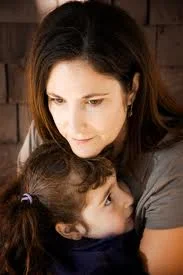“Before I got married I had six theories about bringing up children; now I have six children, and no theories.” ~John Wilmot
All children are not created equal. We recognize this when we have more than one pregnancy, when our friend’s child starts to walk and talk quicker than our own and when we see grades on report cards that allow for improvement. And yet, we so often feel compelled to treat our children equally when it comes to parenting.
If there was one style of parenting that worked, there would not be 3 million parenting books to help teach you the way that works for you and your child. Like the acquisition of most life skills, effective parenting is trial and error and the learning curve is often huge!
When most moms get together and talk about their kids, they spend the majority of their conversation swapping stories of how different their children are of each other and their friends. And then they will talk about what discipline or praise works for them. It is often quite different, just as different as our children. And yet, experts still write books which we read on how to do it the “right” way. Really?
My daughter is a gem. Sensitive, kind, insightful, super smart and well mannered, she brings us great pride. She is also incredibly manipulative and dramatic and uses her intellect to outsmart friends and her little brother to get what she wants, sometimes in deceptive ways. Confident and hopeful, she tries to work over her parents. Doesn’t she know these skills are genetic?
My daughter is also a perfectionist and has anxious tendencies. I know when I talk to her, I have to be sensitive to how she responds to criticism. She works hard to be the best and when she realizes she isn’t all the time, she struggles with this knowledge. My parenting style with her is direct and firm, but with a lot of reinforcement and praise for her positive behaviors to make sure she recognizes her strengths.
My son is a love. I have frequently labeled him “the happiest boy alive.” Charming, witty and always laughing, he truly seems to embrace every moment of life’s joys. I have also labeled him “the beast.” Impulsive and contrary, with an inability to sit still anywhere, he is tough to monitor in public without fearing arrest.
My son is not a perfectionist, with exception to his perfect ability to accept that he will not do everything well. He is quick to give up when he is frustrated and moves on quickly to the next task at hand, comfortable with his level of success. My parenting style with him is also direct and firm, but with more encouragement to keep trying until he does what he sets out to accomplish. He needs continuous redirection and a push to plod forward no matter how tiring or frustrating the task.
As their personalities develop and their behaviors change, I am more aware of how differently I have to treat them, but yet not let them in on the secret, because anyone who has more than one child knows, they are constantly watching for favoritism and discrepancies between how they are being treated. Gender differences and age can also impact how we parent them, but eventually we realize, it’s because they are simply different people, regardless of maturity or gender. By the way, I do think gender makes a big difference in how we parent at times, but that is a different discussion.
So how do you know the right style of parenting for your child? Start with knowing your child and seeing them for who they are. Then take the advice, your own or someone else’s that you have been given and try it out. I really am a firm believer that effective parenting comes from trial and error, which can be time consuming and frustrating, but once you find what works, you are blissfully happy…right up until you and your child change again! And know yourself. If you are given a suggestion that doesn’t jive with your personality, it’s not going to work for you because you won’t be comfortable and it won’t work for your child because they will see it doesn’t fit you. For example, if someone suggested I monitor my son’s every move and redirect his behaviors whenever I see them become negative, it would not work. I believe in fostering independence and learning from your own mistakes. If I were to monitor to his every move, I would get annoyed and he would become dependent on me to know when he was doing something right or wrong and it wouldn’t create the desired result.
So just as much as children are not created equally, neither are their parents! How much trial and error got you to where you are today? My guess is plenty. Sometimes scrapes and bruises help remind us to jump over the rock the next time we see it in our path. And sometimes the scars we endure help define who we are. Error is okay if we learn from it. Embrace what you learn and regroup when it’s not working, with the confidence of knowing we all are in this big learning curve together and with enough patience and effort, it can all work out.





